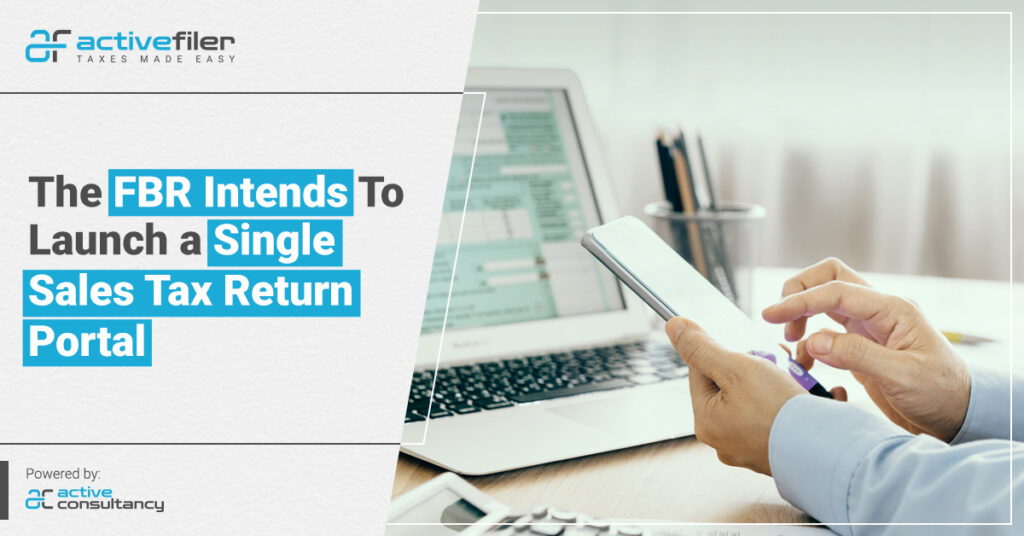ISLAMABAD: Without first establishing a legally compliant and well-integrated system, the Federal Board of Revenue (FBR) plans to launch the unified sales tax return filing facility on Tuesday.
One of the World Bank’s requirements for releasing a $400 million loan is the online portal, which is expected to be inaugurated by Prime Minister Imran Khan and intends to ensure the filing of only one sales tax return instead of six. It’s worth noting that India only put the system in place four years ago.
The platform will be launched on December 28 by the FBR. According to sources and official papers of the FBR, it has informed the province governments — who are the scheme’s key stakeholders — about the launching date.
Currently, there are six tax authorities operating in the country, each of which receives sales tax returns individually. The FBR, Punjab Revenue Authority (PRA), Sindh Revenue Board (SRB), Khyber-Pakhtunkhwa Revenue Authority (KPRA), Balochistan Revenue Authority (BRA), and the Council Board of Revenue of the Azad Jammu and Kashmir (AJK) are among them.
According to an FBR letter with the provinces dated December 15, “the FBR aims to activate the unified sales tax portal/return, and the prime minister has been invited to formally inaugurate the single sales tax site, most likely on December 28, 2021.” However, according to sources, neither the provinces nor any site that could effectively begin operations by January 1, 2022 were ready to hook into the system.
The FBR claimed in its correspondence with the provinces that the single sales tax gateway was created in response to the government’s goal to help taxpayers, promote ease of doing business, and lower compliance costs through conversations and agreements with provincial revenue agencies. The FBR then addressed another letter to the provinces on December 21, requesting them to designate representatives for a committee to be formed to resolve concerns emerging from the single sales tax portal/return and rule harmonization.
“The launching of the portal without first developing a real one can cause embarrassment for the federal government,” a provincial government representative said on the condition of anonymity. The single tax portal aims to make it easier for taxpayers to file a single monthly sales tax return rather than several returns (six) on different portals, which will save time and money.
Tax collectors would benefit from the gateway since it would provide them with a 360-degree view of a taxpayer’s business operations across the country, allowing them to maximize revenue potential and tax compliance. “The single sales tax portal is extremely important for ease of doing business and resolution of interprovincial issues,” Punjab Revenue Authority Chairman Zainulabidin Sahi remarked. However, he stated that the provinces recommended that it be implemented in stages.
The government has also applied to the World Bank for a $400 million loan under the Resilient Institutions for Sustainable Economy (RISE-II). One of the conditions was that, following the ratification of common GST laws passed by the federal and provincial assemblies, the federal and provincial finance departments publish implementing regulations to create a harmonized GST for products and services across the country.
Another requirement is that both the federal and provincial governments use the same property valuation rates. However, both requirements have yet to be implemented.
Conflicts remain unresolved
Despite major integration challenges, the FBR has made plans to implement the system. According to the sources, the so-called new system was only linked with FBR rules since provincial laws had not yet been updated to allow such integration.
According to the sources, the FBR-developed system can only assess tax payable based on origination, which is Sindh’s point of view, but it is not capable of distinguishing services where GST tax is collected at the point of termination.
There was also no structure in place to define who would be responsible for assessing and auditing the returns submitted through the single portal. Another unresolved issue is that provincial HS codes differ from the FBR, making it impossible to reconcile the two sets of laws. More importantly, separate GST rates apply across the country, with Sindh charging 13% GST on services, Punjab 15%, and the FBR charging 17%.
The taxpayers are registered in several states. After the opening of the new portal, it is unclear who will register and de-register them. According to the sources, “The FBR-designed portal is not able of auto calculate input and output tax adjustments among six tax authorities.
The Centre-Province dispute continues
The disagreement over property taxation between the federal and provincial governments has not been resolved. Punjab has argued that the FBR should be allowed to set its own value rates.
According to communication between Punjab and the federal government, instead of the provincial government adopting the FBR value tables, the DC valuation tables created in cooperation with the FBR should be approved by the FBR. The Punjab Board of Revenue believes that the FBR should adopt the DC valuation tables because they are more accurate and are based on new field officer surveys conducted in cooperation with the FBR.
DC valuation tables are also notified once a year, as per the aforementioned rules, and no second revision is permitted. The FBR had just announced revised property valuation rates, but those had to be suspended after substantial inconsistencies were discovered by real estate industry participants.




